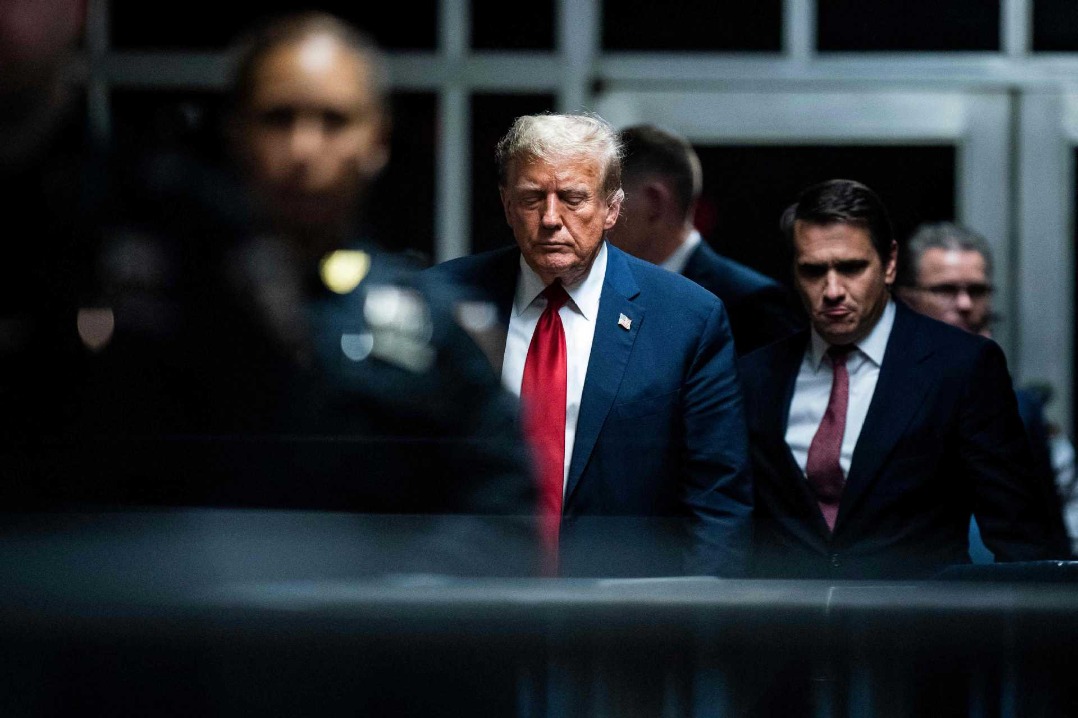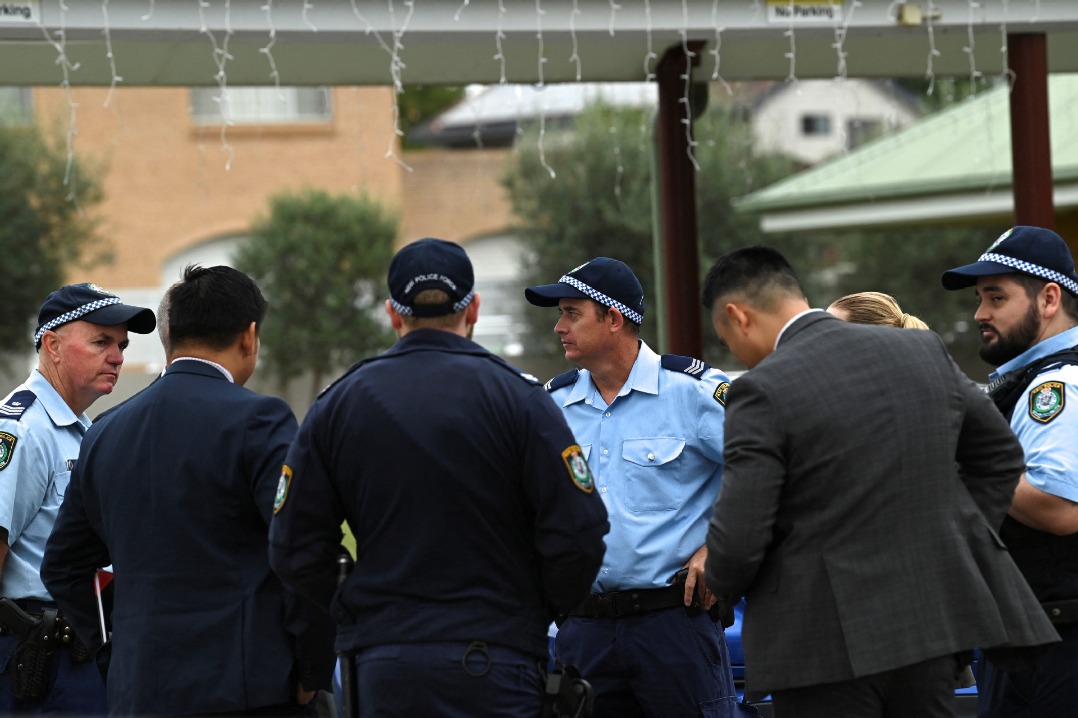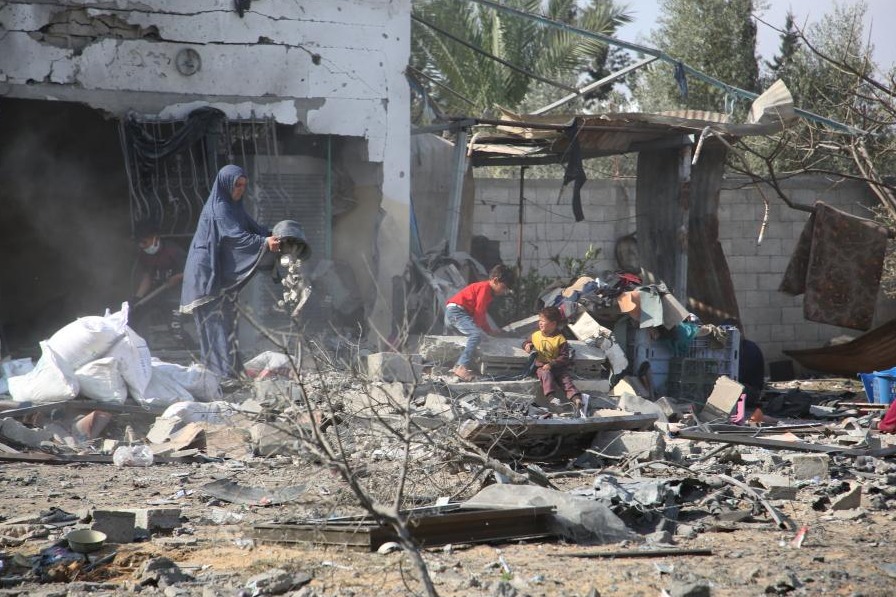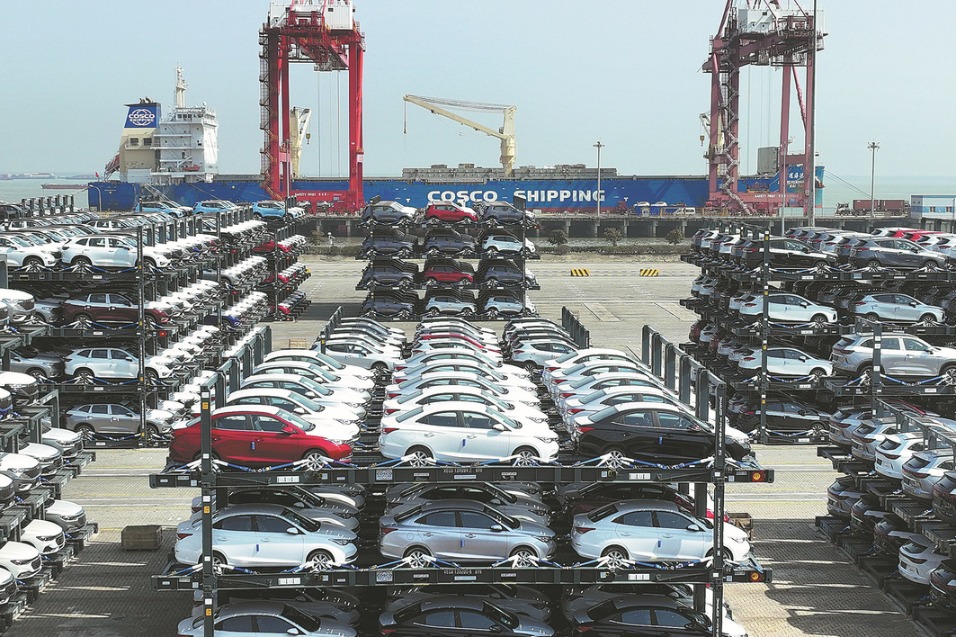Cautious attitude needed amid current conflicts


When US President Joe Biden was inaugurated 15 months ago, he called the "Indo-Pacific" his top foreign-policy priority. He will now make his first visit to Asia from Friday to Tuesday, with trips to the Republic of Korea and Japan.
In Tokyo, he is to meet with leaders of the so-called Quad grouping of nations-the United States, Australia, Japan and India.
Biden's visits are an effort to dispel the notion that the US is paying more attention to Europe because of the Ukraine crisis. Besides, he may push for the so-called Indo-Pacific Economic Framework. Yet the concern is whether Biden's trip will make the already unstable situation in Northeast Asia even more so.
US news outlets are reporting that one of the main purposes of the visit is to contain China's growing influence. This approach has been one of the main reasons for the deterioration of US-China relations, and it has increased the instability of both Northeast Asia and the international order.
Two recent events further increase this concern.
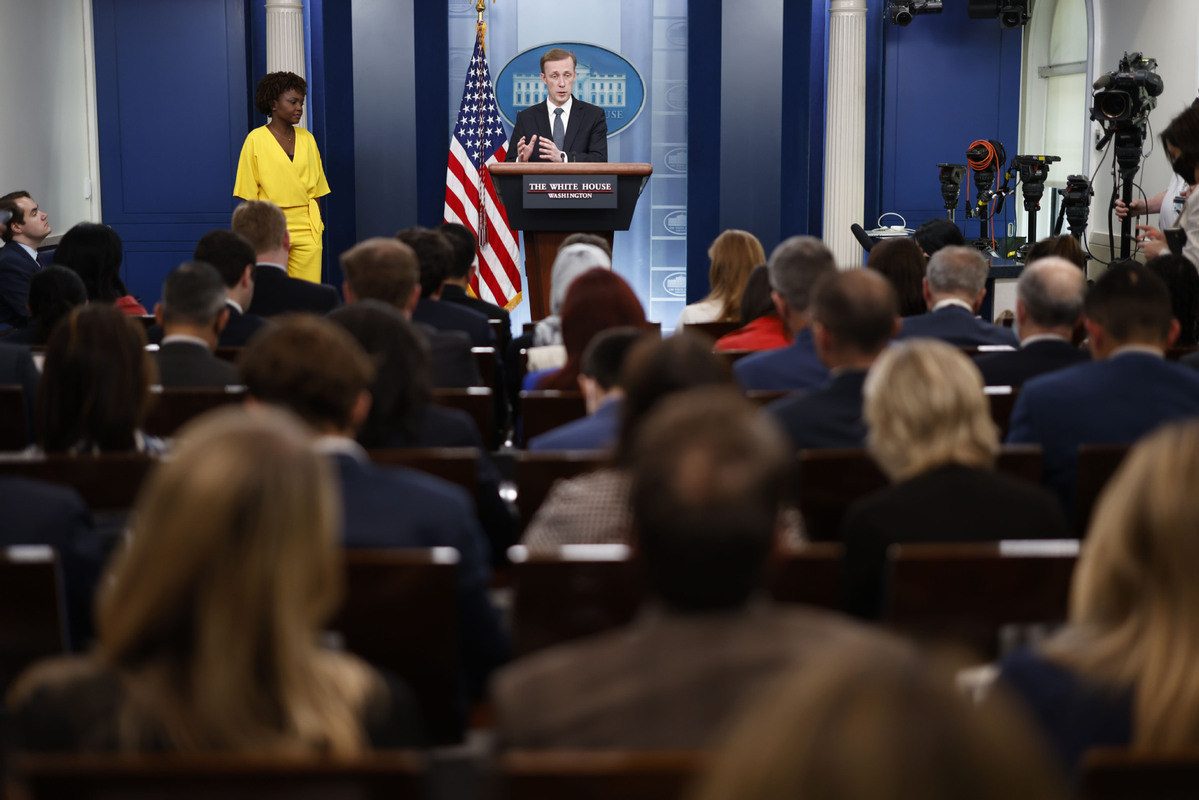
First, the ongoing crisis in Ukraine has greatly heightened international tensions. It could worsen the ruptures in Northeast Asia, especially if the US asks its allies to be more active in the Ukraine conflict.
Some people use the "new Cold War" metaphor to explain the recent changes in the international order. Certainly we are seeing some Cold War mindset approaches, such as treating international affairs as a "confrontation between democracy and autocracy". The more serious problem, however, is not a new Cold War but the possibility of a hot war between great powers, which could be a disaster for all mankind.
Second, since the beginning of this year, tensions have been rising on the Korean Peninsula after successive missile tests by the Democratic People's Republic of Korea.
DPRK-US dialogue has not resumed, because of the differences between the two sides on the conditions for dialogue. While the Biden administration insists on starting a dialogue without preconditions, Pyongyang argues that dialogue is meaningless in a situation where the hostile policies toward the DPRK, such as joint ROK-US military exercises and sanctions against the DPRK, continue.
As a result, Pyongyang said in January that it will evaluate restarting all temporarily suspended activities, which implies the possibility of lifting its self-imposed moratorium, in place since 2017, on testing nuclear weapons and intercontinental ballistic missiles. In April, the DPRK test-launched an ICBM capable of hitting the US mainland.
Against the backdrop of accelerating US-China competition, these risk factors can interact in a way that makes the situation in Northeast Asia more dangerous. If so, is there any opportunity to turn the situation around? No one seems able to give a positive answer.
But there are also a few factors that can lead the situation in a positive direction. Above all, awareness of the dangers of conflict and confrontation in the international community has been growing recently. As the international situation worsens, many countries' domestic economic problems are also getting worse.
German philosopher Immanuel Kant argued in his book Perpetual Peace that fear of danger can trigger a movement toward peace. For a while, exploiting external conflicts can mask the seriousness of domestic problems, but this approach is not sustainable. This is a lesson to be learned through a very painful process. But it is a lesson that should be apprehended sooner-as soon as possible-rather than later.
For Biden, the ROK trip could be the most critical. Newly elected President Yoon Suk-yeol, in his election campaign, signaled some big shifts in Seoul's foreign policy toward strengthening the US alliance and even a more confrontational approach toward Pyongyang. Therefore, the ROKUS summit could give new momentum to Biden's Indo-Pacific strategy.
So far, the new ROK government has maintained a cautious attitude rather than pursuing rapid policy changes. The Yoon administration also seems to be considering the possibility that the recent change in the situation could lead to the worst situation.
Conflicts that have appeared so far are difficult to resolve within a short period of time, and new factors may emerge. Let us hope that this cautious attitude will lead to a new opportunity for cooperation without exacerbating the current conflicts. To this end, Washington and Seoul need to carefully consider two things.
First, even if they pursue common goals and values, they should not try to target or exclude anyone else. They should contribute to the international community in a way that sets an example, and not invite confrontation.
Second, comprehensive cooperation among the countries concerned should be pursued to prevent escalation of military tensions on the Korean Peninsula. This is a prerequisite for-and also the starting point for pursuing-peace and stability in Northeast Asia.
The author is a professor of Chinese studies at Sungkonghoe University in Seoul.
















